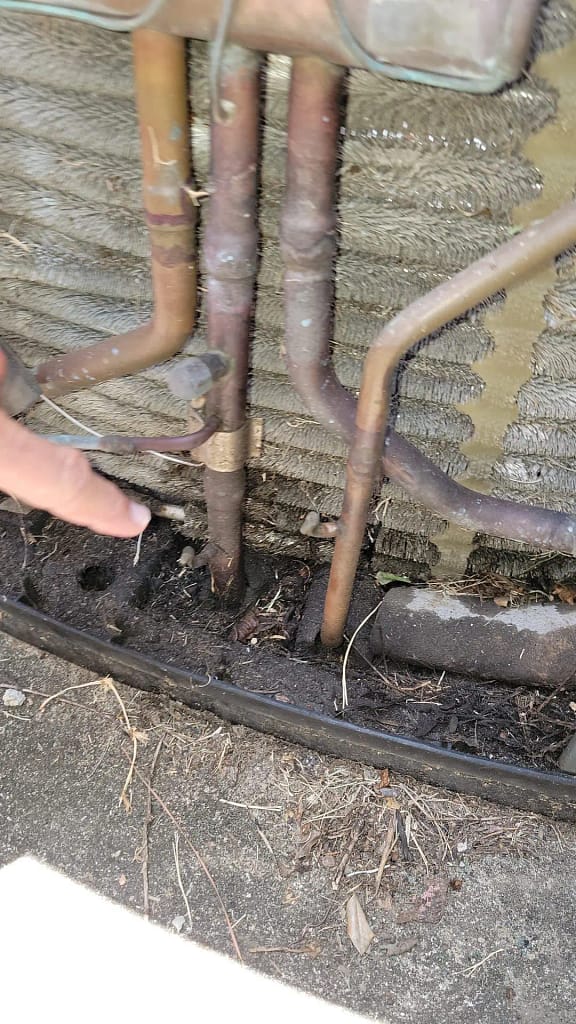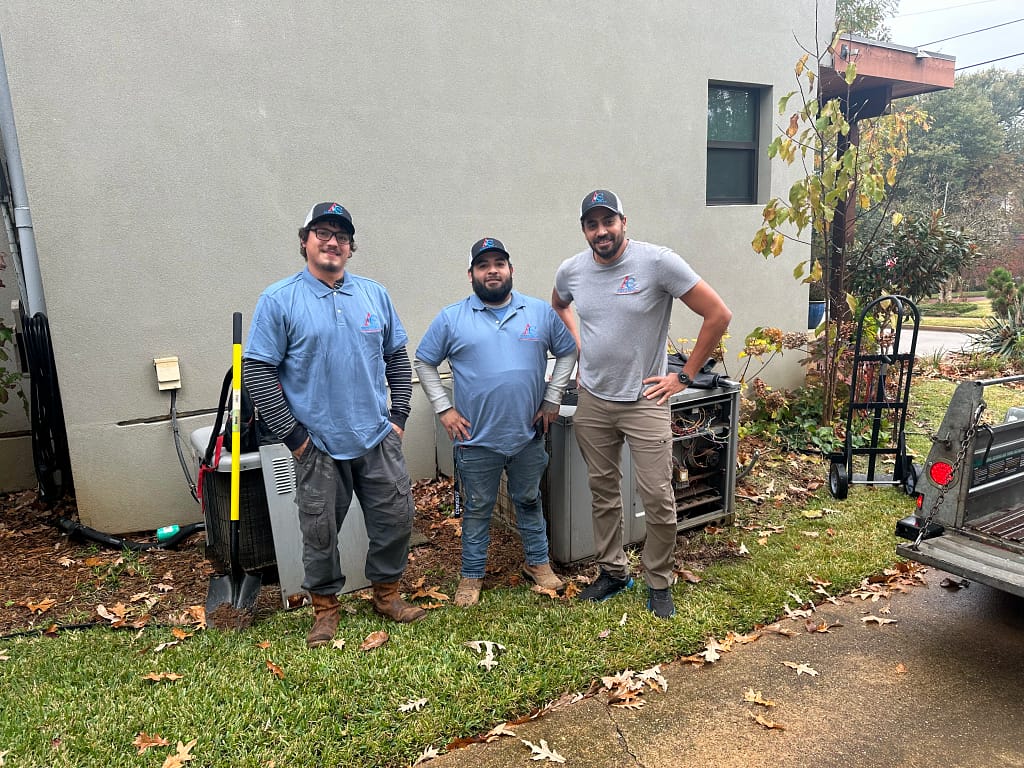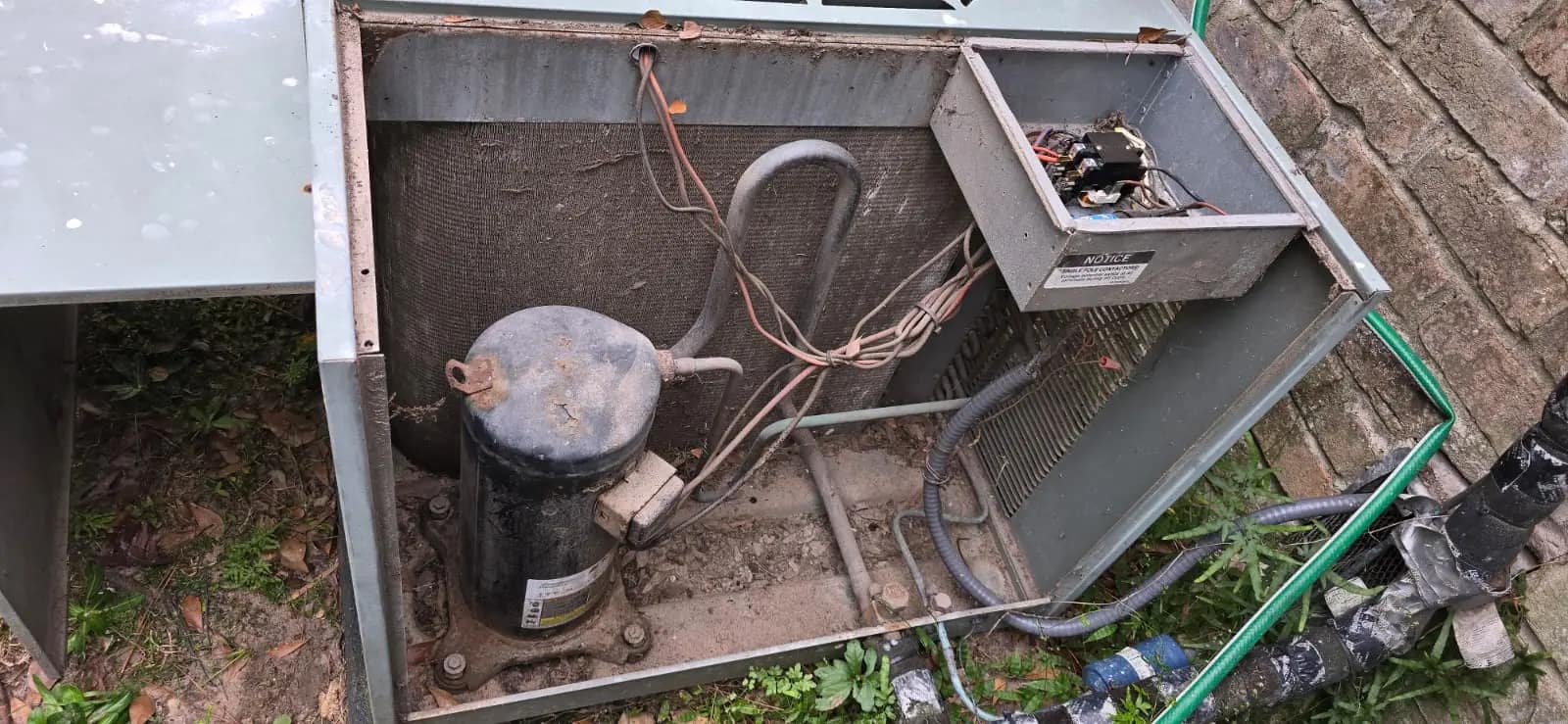If your house air conditioner is not cooling, the most common causes in Texas are a tripped breaker, a clogged air filter, a frozen evaporator coil, or a failed capacitor. First, check your thermostat settings and the air filter. If the outdoor unit is running but the air isn’t cold, turn the system off immediately to prevent compressor damage and call a licensed technician to check for refrigerant leaks or electrical failures.
There is nothing quite like the panic of a house air conditioner not cooling when it’s 100 degrees in Katy or Richmond. In 2026, with energy rates rising and new refrigerant standards in place, a system that isn’t cooling properly isn’t just a comfort issue—it’s a financial one. Whether you are in Sugar Land, Pearland, or Tyler, this guide will help you diagnose the problem before you spend a dime on HVAC system repair cost.
Emergency Troubleshooting Checklist
Common Texas Homeowner Questions
How do I reset my central AC that is not blowing cold air?
To reset your system, turn it off at the thermostat and then flip the dedicated AC breaker in your electrical panel to “OFF” for 30 seconds before flipping it back to “ON.” Wait 5–10 minutes before turning the thermostat back to “Cool.” If the house air conditioner not cooling issue persists after a reset, you likely have a failed component like a capacitor or fan motor.
Should you turn off AC if it’s not cooling?
Yes. If your system is running but the air isn’t cold, you should turn it off at the thermostat immediately. Continuing to run a malfunctioning unit can cause the evaporator coil to freeze solid or, worse, cause the compressor to overheat and fail. A failed compressor is the most expensive part of an HVAC system.
2026 Repair Cost Table: Why Isn’t It Cold?
| Symptom | Likely Culprit | Est. Repair Cost (Texas) |
| The air blows weak and warm | Dual Run Capacitor | $225–$480 |
| Icy buildup on copper pipes | Low Refrigerant/Leak | Cost to repair a leaking AC unit |
| Air blows weak and warm | Clogged Filter/Blower Motor | $0 (DIY) – $1,200 |
| Total silence from the outdoor unit | Contactor or Circuit Board | $300–$850 |

Local Service Areas: We Know the Texas Heat
From the humidity of Brookshire and Missouri City to the suburban stretches of Stafford and Rosenberg, we understand why a house air conditioner not cooling is a localized emergency. High humidity in our region often leads to higher HVAC maintenance cost due to algae growth in drain lines. Whether you need heating service in the winter or emergency cooling in Tyler, our team is ready.
Still have questions? Check out our Community Q&A to see what other homeowners are experiencing this summer, or browse our maintenance service plans to prevent the next breakdown.
For more technical DIY steps, refer to the Energy.gov Guide on Troubleshooting Common Air Conditioner Problems.
Still Blowing Warm Air?
Don’t suffer in a hot house. Our licensed Texas technicians are standing by to get your cooling back online today!
Emergency Financing Available | Call a Pro: (713) 832-5545
License No: TACLA122806E
Fast Dispatch To: Katy, Sugar Land, Pearland, Spring, Cypress, Brookshire, Richmond, Rosenberg, Missouri City, Stafford, and Tyler.





